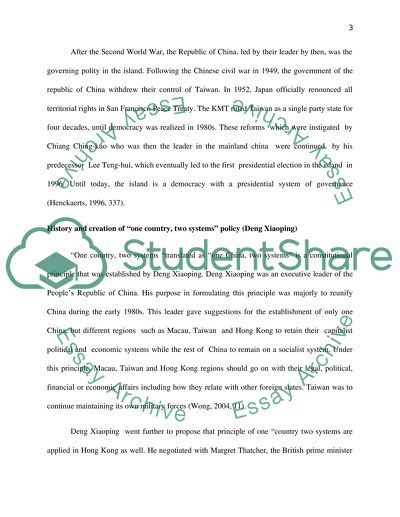Cite this document
(“Taiwan and the One Country, Two Systems Essay Example | Topics and Well Written Essays - 2500 words”, n.d.)
Retrieved de https://studentshare.org/history/1637612-taiwan-and-the-one-country-two-systems
Retrieved de https://studentshare.org/history/1637612-taiwan-and-the-one-country-two-systems
(Taiwan and the One Country, Two Systems Essay Example | Topics and Well Written Essays - 2500 Words)
https://studentshare.org/history/1637612-taiwan-and-the-one-country-two-systems.
https://studentshare.org/history/1637612-taiwan-and-the-one-country-two-systems.
“Taiwan and the One Country, Two Systems Essay Example | Topics and Well Written Essays - 2500 Words”, n.d. https://studentshare.org/history/1637612-taiwan-and-the-one-country-two-systems.


